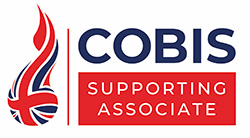So much has been said about teaching strategies in recent years that a whole industry has grown around this area; books, blogs, vlogs, courses, experts, etc. Consequently, all manner of instructional strategies, pedagogical approaches and learning resources have sprouted up with each author claiming to have the solution.
Many of these ideas focus in on the minutiae of classroom behaviour, procedures and techniques and are understandably microcosmic in nature. It is therefore important to zoom out and take a macrocosmic viewpoint and see education from a much wider perspective by asking, what is the purpose of education? What are schools here for? What should we be teaching and what should young people be learning?
These broader questions can then lead to more specific ponderings such as, ‘it’s not what we teach that matters, it’s what they learn that counts;’ and ‘education should be about the lighting of a fire not the filling of a pale.’ Once we adopt a more philosophical stance it changes the focus from teacher to learner.
Reflective teaching and the thinking process
All good teachers are reflective teachers. The first question they ask themselves is ‘how can that lesson have been better?’ They ask students for feedback and act upon it to ensure that they are involved with continuous improvement. They listen to learners and ensure their voice is heard and future lessons will improve because of their personal commitment to the growth of young people.
In his book ‘Black Box Thinking’, Mathew Syed demonstrates how the aviation industry learns from past errors and failures in order to save lives. By comparison the medical profession advocates using words like technical difficulties, complications and unforeseen circumstances, rather than reflecting upon mistakes in order to prevent similar future occurrences. Currently education falls somewhere between the two with reflection being left to the integrity of individuals to decide on a hourly basis, whether or not their teaching has been effective.
Effective teaching focusing on academic results
So just how do we assess efficacy, how do we know if we have delivered effective teaching and learning? Most of our monitoring systems are crude and measure effective teaching by focusing on outcomes and end results; in short the performance and grading of our students in examinations. Is this really the most effective way to assess just how effective our teaching strategies have been?
Little or no attention is paid to the process and the journey that students experience and the things they learn informally, almost by chance. Our best teachers are those that see lessons as experiences and opportunities to create learning environments, which reflect real life. They devise lessons that are relevant, fun and interactive in which students are visibly and tangibly engaged and immersed. Such environment can be achieved by making the students work as a group and developing teambuilding activities in the classroom.
Creative teaching to push new ways of learning
The best classroom strategies are the ones that ensure there is complete differentiation in teaching. Top teachers, when planning lessons, know their students, reinforce positive language, know how the pupils learn best and they will creatively plan a broader series of activities that will reach as many of the young people as possible.
The most reflective practitioners will ask their students whether or not they enjoyed the lesson, some are even been brave enough to ask for feedback on social media. Creative teaching takes risks and needs courage. Brave teachers will try things and will be prepared to make mistakes and fail. They will openly admit their faults and show humility and integrity to their students whilst also enjoying the failure.
Creative teaching explores new directions, new methods, innovative solutions by not restricting learning to classrooms, desks and whiteboards. Teachers encourage learners to take control of their own learning. One of the least known but most effective of all teaching strategies is Mosston’s Spectrum of Teaching Styles, which was devised specifically for PE teachers to help their students move from dependent to independent learning. Very few PE teachers, let alone classroom teachers, have ever used this spectrum regularly or effectively and have missed a wonderful teaching and learning strategy.
Are teachers using these methods in practice?
So just how effective is the training of our teachers? With more thought and greater vision could we do it better? The old adage springs to mind, ‘when a Primary school teacher is asked what they teach, they say ‘children’; when a secondary school teacher is asked they say ‘French, Maths, English’ or whatever subject it is they teach. How can we change and improve teaching practice to ensure a broader and deeper preparatory experience.
Could we not ensure that part of all our teacher-training courses includes learning to teach in the primary school so secondary staff better understand child development with a more holistic view of the journey primary students take before they arrive in secondary school? Could we not have primary teachers in training spend time in secondary education so they are fully aware of the challenges their students will face later in life?
Of course, all this emphasis on the learners takes its toll somewhere. Teachers are human beings and can only give so much. Increased pressure and workload mean that the act of teaching becomes peripheral to the many other things they are expected to do. Many of them already spend hours at night and their weekends devoted to lesson planning and associated tasks, which go unnoticed and without reward. So that said, maybe now is the moment to reflect on the higher purpose of education and make brave and visionary changes to a system that puts the needs of young people at the heart of the process.
If you are interested in improving your teaching skills take a look at our teacher training days.














